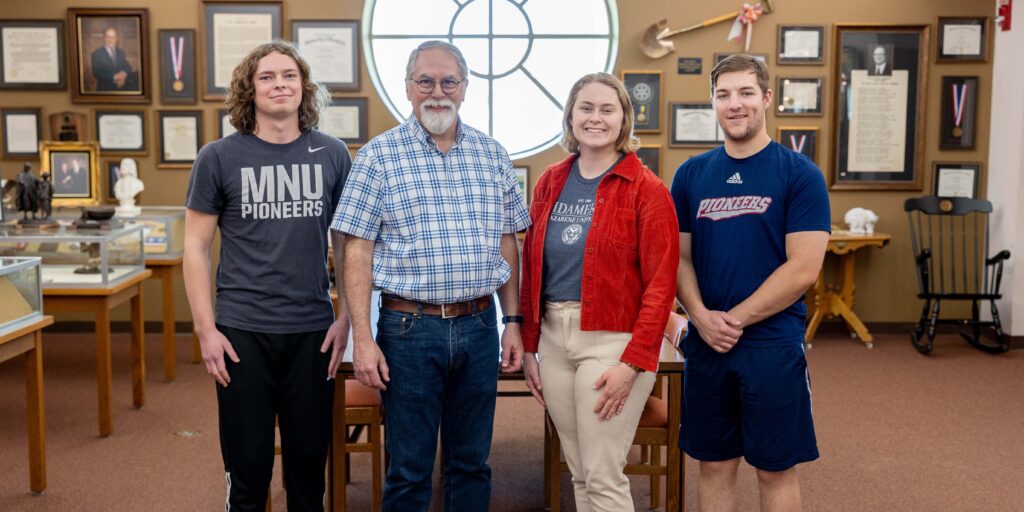
The Marge Smith Archives at MNU is named for the wife of the first president of the university who started the archives and meticulously saved artifacts and documents from the institution’s beginning. Pictured in the Archives are students who have worked to catalog two pioneer trail map collections. L to R: Brett Jackson, student; Lon Dagley, MNU archivist and associate professor emeritus; Sage Friedline, student; and Gabe Martin, student.
Nestled on the second floor of the Mabee Learning Commons, the Marge Smith Archives serves as a bridge between the past and present, preserving the rich history of MNU for future generations. Housing an extensive collection of historical documents, photos, recordings, artifacts, and memorabilia, the archives offer a glimpse into MNU’s journey—from its founding in 1966 to its growth into a thriving institution of faith and learning. More than just a repository of old records, the archives play a vital role in preserving the university’s legacy, providing invaluable resources for students, faculty, alumni, and researchers. Through careful preservation and dedicated stewardship, the archives ensure that the stories, milestones, and traditions that define MNU remain accessible and cherished for years to come. The care and preservation of this treasure trove is the responsibility of Archivist and Assistant Library Director Rev. Lon Dagley.
Dagley explains that the archives fundamentally exist to record the history of MNU, which traces back to the 1964 General Assembly of the Church of the Nazarene when two junior colleges—College A and College B—were established. College A became Mount Vernon Nazarene University, while College B evolved into MNU. The archives not only preserve records from the university’s formation but also connect to the broader history of the Church of the Nazarene, highlighting how the denomination contributed to MNU’s establishment.
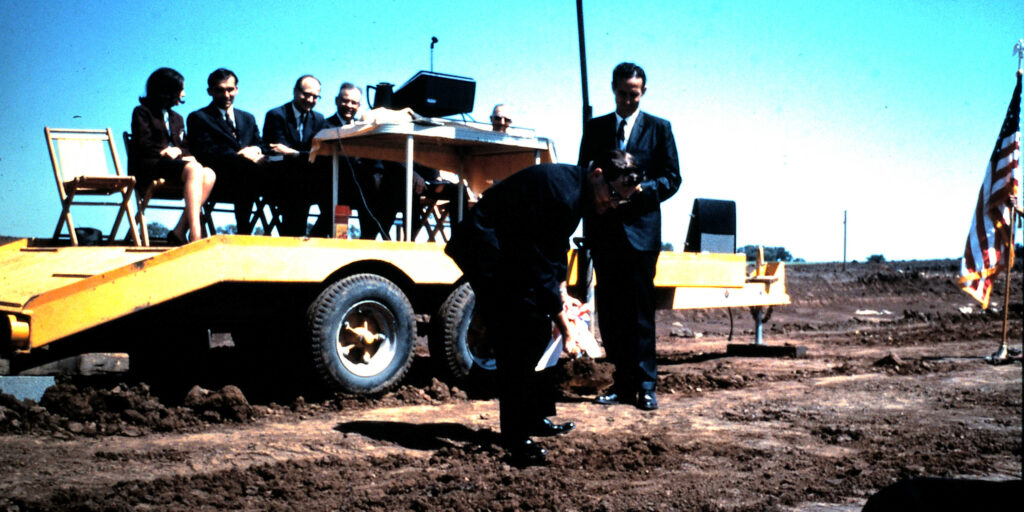
MNU’s history is deeply intertwined with the societal changes of the 1960s and 70s, a time of political and social upheaval in the United States. Dr. Paul Cunningham, general superintendent emeritus, and Dr. R. Curtis Smith, who served as MNU’s first president, played pivotal roles in securing local support for the university, forging connections with key figures such as Olathe banker R.R. Osborne. This support was instrumental in shaping the university’s foundation. At the same time, the City of Olathe was undergoing a major transformation. Previously a military town centered around the Olathe Naval Air Station, the city had to redefine itself after the base closure in the early 1960s. MNU’s arrival contributed to Olathe’s transition into a hub for education and professional workforce development.
Dagley highlights this broad impact of MNU on the Olathe community. “MNU produces numerous teachers, nurses, doctors, and civic leaders, many of whom remain in the area, helping to build a skilled workforce that has attracted businesses like Garmin International and Honeywell,” he said. “The archives capture this transformation through aerial photographs and other historical records, documenting the city’s growth alongside the university’s expansion.”
The archives hold a treasure trove of rare books, the James Dobson, Sr., Bible collection, documents, memorabilia from MNU athletics, capital campaigns, and fundraisers. The collection also includes the archives of the now-closed Vennard College, a Holiness liberal arts college formerly in Oskaloosa, Iowa.
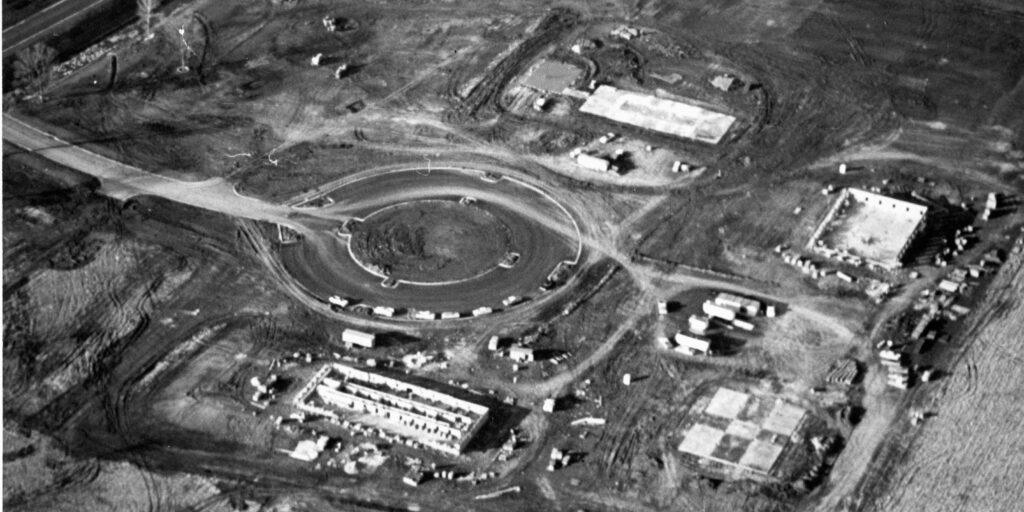
Dagley highlights this broad impact of MNU on the Olathe community. “MNU produces numerous teachers, nurses, doctors, and civic leaders, many of whom remain in the area, helping to build a skilled workforce that has attracted businesses like Garmin International and Honeywell,” he said. “The archives capture this transformation through aerial photographs and other historical records, documenting the city’s growth alongside the university’s expansion.”
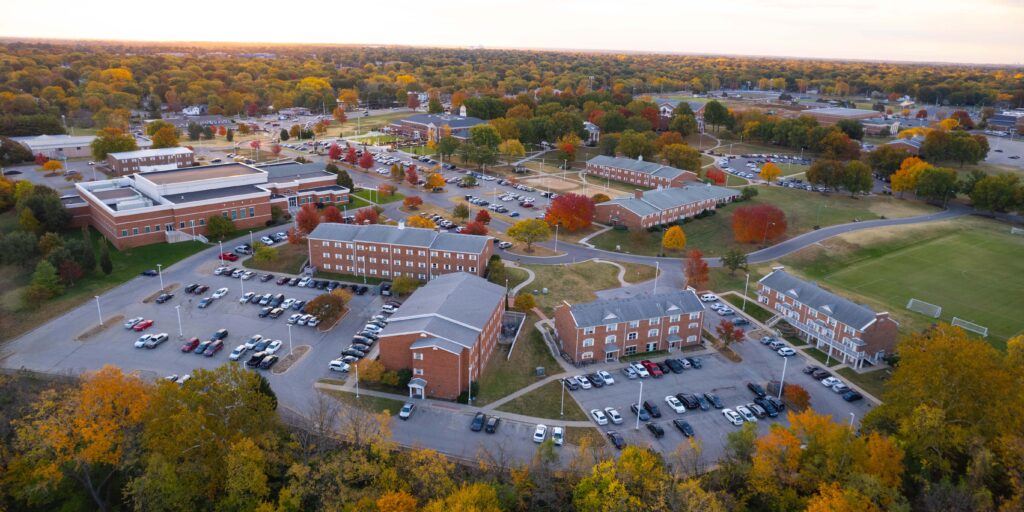
Beyond preserving MNU’s institutional history, the Marge Smith Archives also houses significant regional historical collections. One notable acquisition is the Santa Fe Trail map collection created by Lee Kroh, a local historian who meticulously mapped the 400-mile trail using surveyor journals and modern geographic tools. The Kansas State Historical Society has digitized these maps, making them accessible online. MNU now serves as a repository for this collection, integrating it into coursework under the guidance of MNU Associate Professor of History Dr. Darin Tuck. This partnership enables students to engage in hands-on historical research, aligning with MNU’s academic goal of providing experiential education.
Ultimately, the Marge Smith Archives safeguards MNU’s legacy while serving as a resource for education, research, and community engagement. The archives preserve history through its collections while actively contributing to the community’s academic and cultural life.
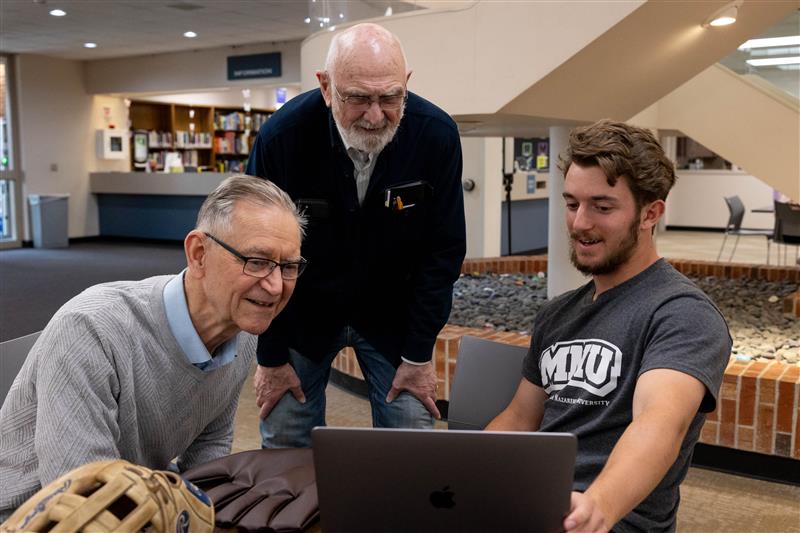
An important aspect of preserving the archives is digitizing photos, slides and recordings. Dagley says about two-thirds of the collection is complete thanks to grants that funded student worker assistance in the massive project.
Dagley is retiring from MNU in June. He will be missed in a variety of roles beyond archivist. In addition to his library duties at MNU, his previous experience in information technology management has been parlayed to assist students and faculty with technology and equipment. Dagley’s background is diverse having earned graduate degrees from Nazarene Theological Seminary in religious education and Emporia State University in library science and information management. After serving as assistant archivist, then in technology and IT for the Church of the Nazarene, Dagley came to work at MNU in 2006. After retirement, he plans to stay active with volunteer work for the Wesleyan Holiness Digital Library, an online resource of the Church of the Nazarene. Dagley helped envision and create the WHDL with volunteers from the Nazarene Library Group. The digital collection holds over 8,000 free downloadable resources in over 70 languages with repositories for 30 partner institutions.
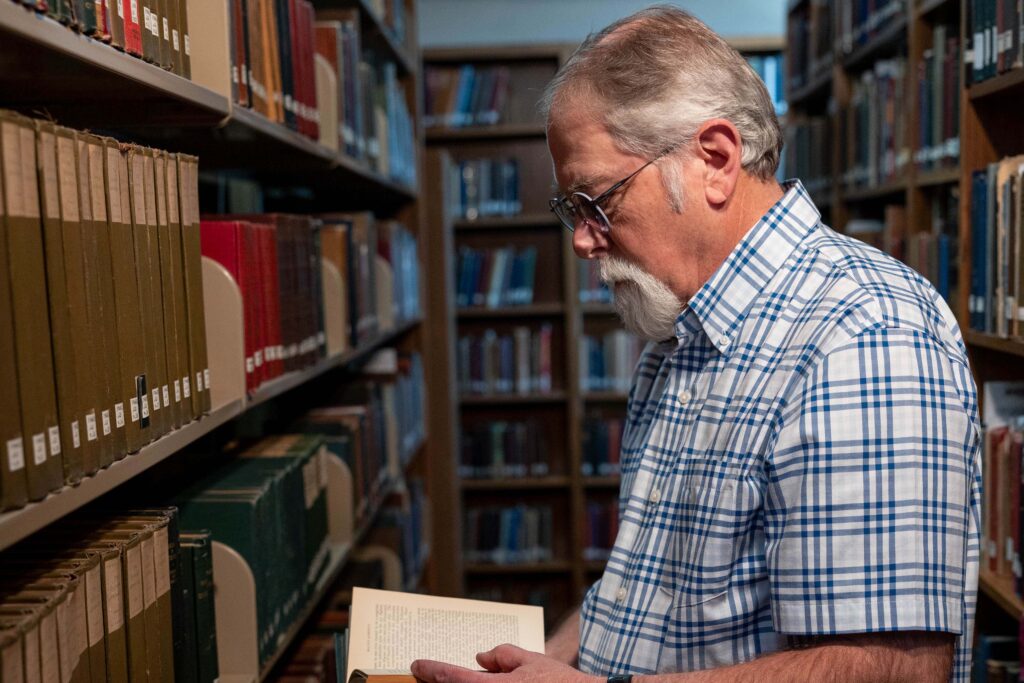
Dagley and his wife Mary plan to enjoy their retirement in Shawnee, Kansas. They are active members of and volunteers at Shawnee Church of the Nazarene. The Dagleys have two adult daughters: Elizabeth Graham and Lisa Reed, both MNU alums.